Africa hosts some of the world’s most vibrant cultural celebrations through festivals combining ancient traditions with contemporary artistic expressions. These events offer travelers extraordinary opportunities to experience authentic cultural practices while contributing to local economies through sustainable tourism models.
Here is a list of 15 remarkable African festivals showcasing the continent’s incredible diversity through celebrations of music, spirituality, nomadic traditions, and artistic excellence—events where cultural heritage remains vibrant rather than performed solely for tourist consumption.
Festival au Désert
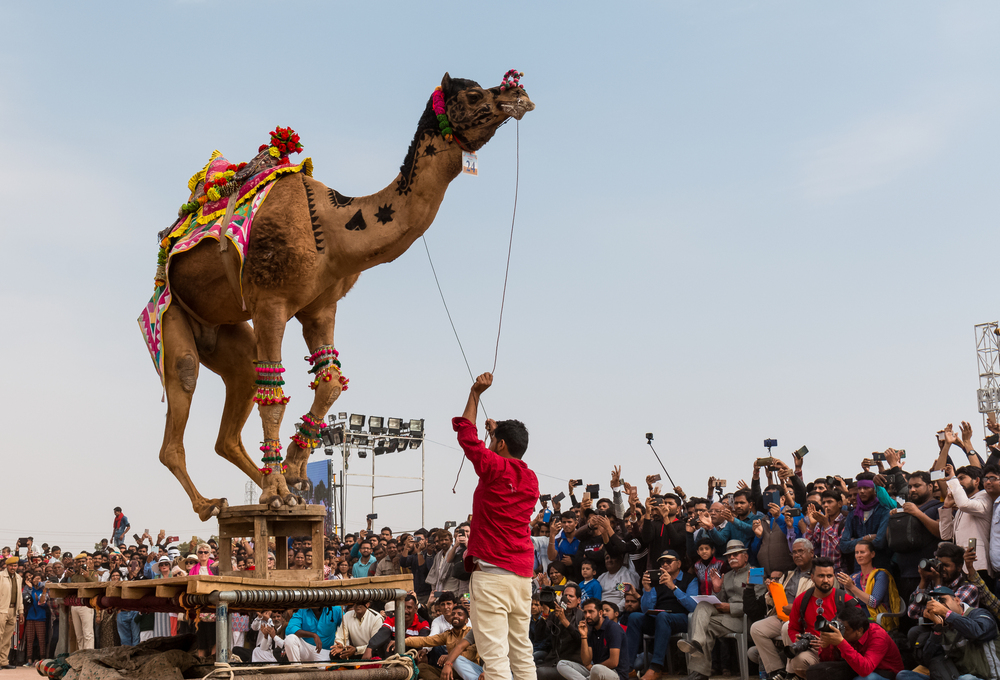
Mali’s legendary gathering traditionally brings together Tuareg nomads and international visitors near Timbuktu for extraordinary musical exchanges under desert stars. The festival originated from traditional Tuareg gatherings marking seasonal migrations across the Sahara, with celebrations featuring distinctive guitar-driven music.
International attention grew steadily after performances by artists like Ali Farka Touré introduced broader audiences to desert blues traditions. Security concerns forced relocation to exile editions hosted in neighboring countries, though organizers maintain hopes of an eventual return to the original Timbuktu-adjacent locations when regional stability improves.
Lake of Stars
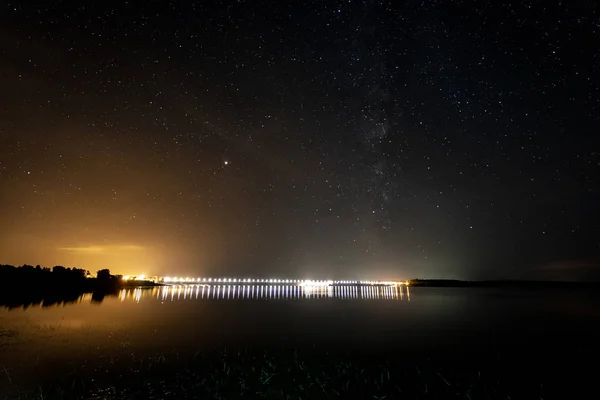
Malawi’s transformative festival combines international performers with local artists along the picturesque Lake Malawi shorelines, creating one of Africa’s most dynamic music events outside South Africa. Founded in 2004 by British-Malawian entrepreneur Will Jameson, the gathering has significantly boosted regional tourism while providing unprecedented platforms for local musicians.
The festival generates approximately $1.6 million for Malawi’s economy by attracting visitors who typically extend their stays to explore the country beyond festival dates. Programming thoughtfully balances international headliners with emerging Malawian talent, creating genuine cultural exchange rather than simple musical tourism.
Like Travel Pug’s content? Follow us on MSN.
Timkat
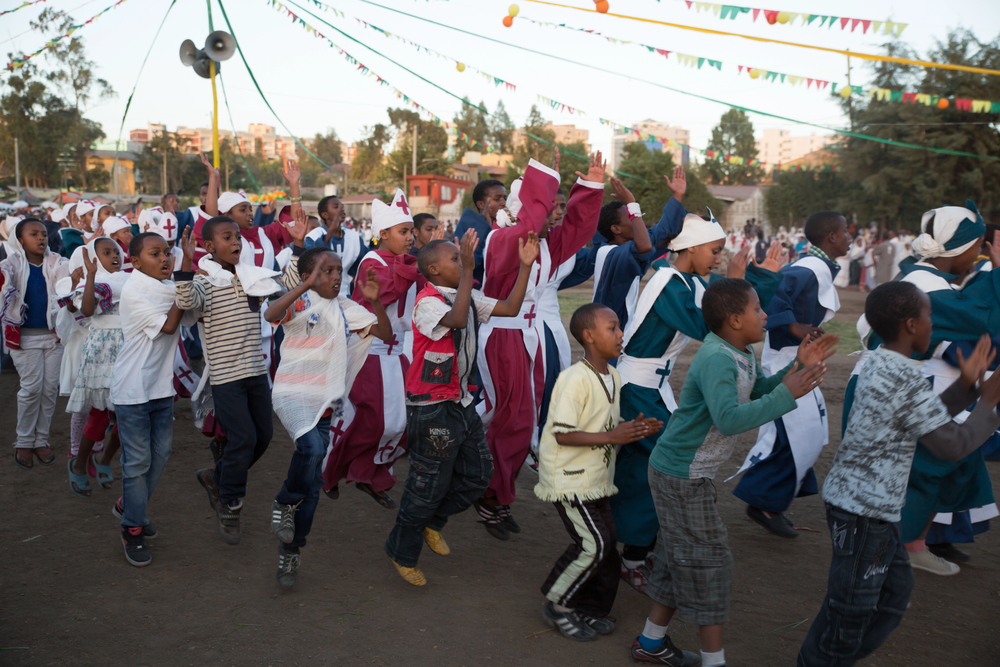
Ethiopia’s dramatic Epiphany celebrations represent Orthodox Christianity’s largest water blessing ceremony through processions re-enacting Jesus’s baptism across ancient cities like Gondar and Lalibela. White-robed priests carry sacred tablets (replicas of the Ark of the Covenant) from churches to water bodies while communities follow in elaborate processions featuring distinctive ceremonial umbrellas.
The most spectacular observances occur at Gondar’s 17th-century Fasilides Bath, where young men leap into the water following priestly blessings in ceremonies unchanged for centuries. Participants wear traditional white cotton clothing with colorful embroidered crosses reflecting Ethiopia’s unique Christian traditions developed in relative isolation from European influence.
Gerewol
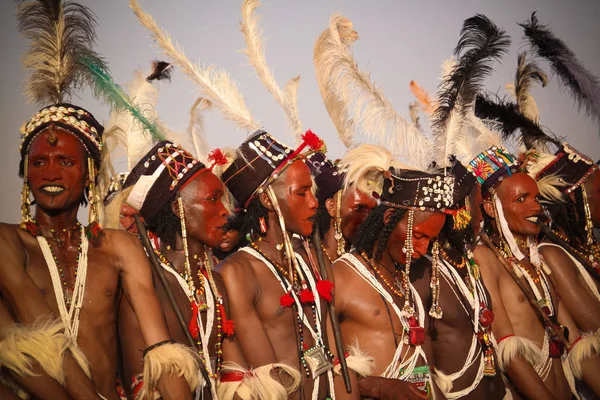
Niger’s Wodaabe people conduct this remarkable male beauty contest where nomadic herders compete through elaborate makeup, facial expressions, and dancing to impress female judges selecting potential husbands. Men spend hours applying yellow ochre face paint, darkening lips, and highlighting eyes with kohl while wearing elaborate headdresses featuring ostrich feathers and cowrie shells.
The contestants perform the yaake dance, requiring sustained smiling while rolling their eyes and maintaining perfect posture, demonstrating endurance and physical control. This genuine cultural tradition continues serving actual community purposes rather than existing primarily as a tourist attraction despite increasing outside interest.
HIFA
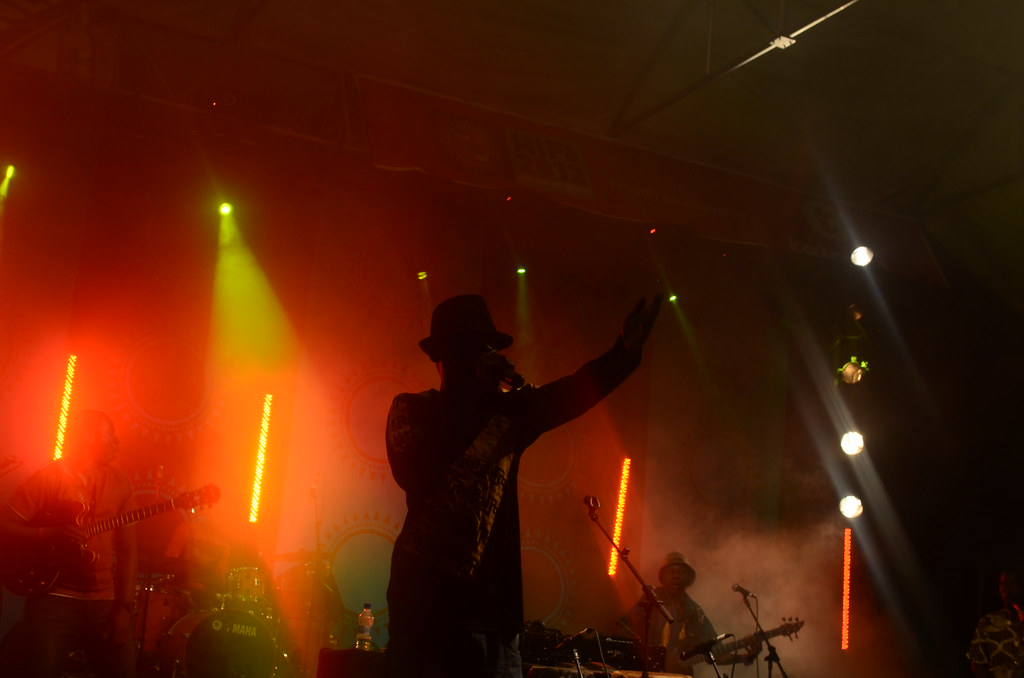
Zimbabwe’s Harare International Festival of the Arts transforms the capital city through six days of performances across all artistic disciplines while navigating complex political environments affecting cultural expression. Founded in 1999 during relative economic stability, the festival has persevered through Zimbabwe’s challenging political landscape by carefully balancing artistic freedom with the practical realities of operating in constrained environments.
Programming spans traditional mbira performances to contemporary theater, addressing social issues through works by both international and Zimbabwean artists. The festival creates crucial platforms for creative expression despite challenges facing Zimbabwe’s cultural sector, beyond headline performances drawing international attention.
Like Travel Pug’s content? Follow us on MSN.
Fez Festival of World Sacred Music
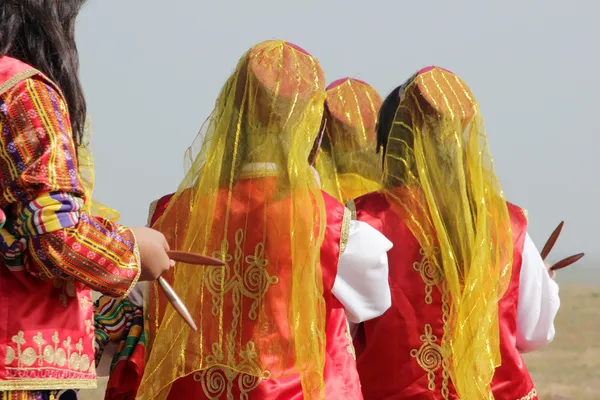
Morocco’s ancient imperial city hosts this gathering, bringing performers from diverse spiritual traditions together in architectural settings dating to medieval times. Performances occur in remarkable venues, including 14th-century madrasas and palace courtyards, where Islamic architectural acoustics enhance musical experiences through intentional design features.
Programming ranges from Sufi devotional performances to Gregorian chants and Hindu devotional music united through their shared spiritual foundations despite diverse theological contexts. The festival emerged following the first Gulf War specifically to counter perceptions of inevitable conflict between different religious traditions by demonstrating their shared artistic expressions.
Mombasa Carnival
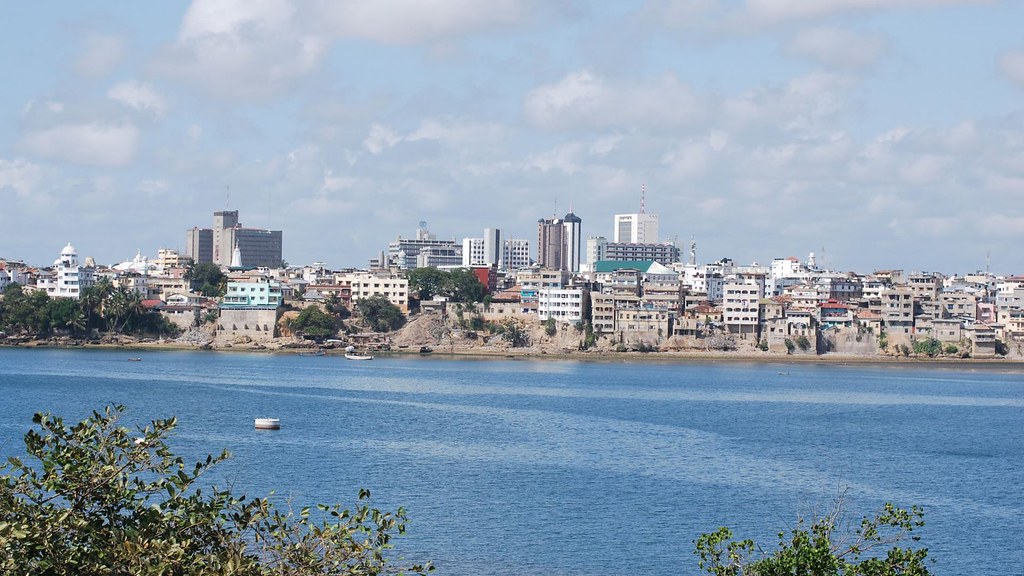
Kenya’s coastal celebration blends Swahili traditions with Portuguese, Arabic, and Indian influences, reflecting the region’s complex cultural history as an Indian Ocean trading center. Processions feature traditional ngoma dancing alongside contemporary music while showcasing distinctive bao game competitions played on carved wooden boards throughout East Africa.
Culinary components highlight coastal Kenya’s unique fusion cuisine, where coconut, tamarind, and Indian spices combine with local ingredients, creating dishes found nowhere else. The event balances tourism promotion with genuine cultural expression, maintaining strong connections to actual community practices rather than performances created specifically for visitors.
Eyo Festival
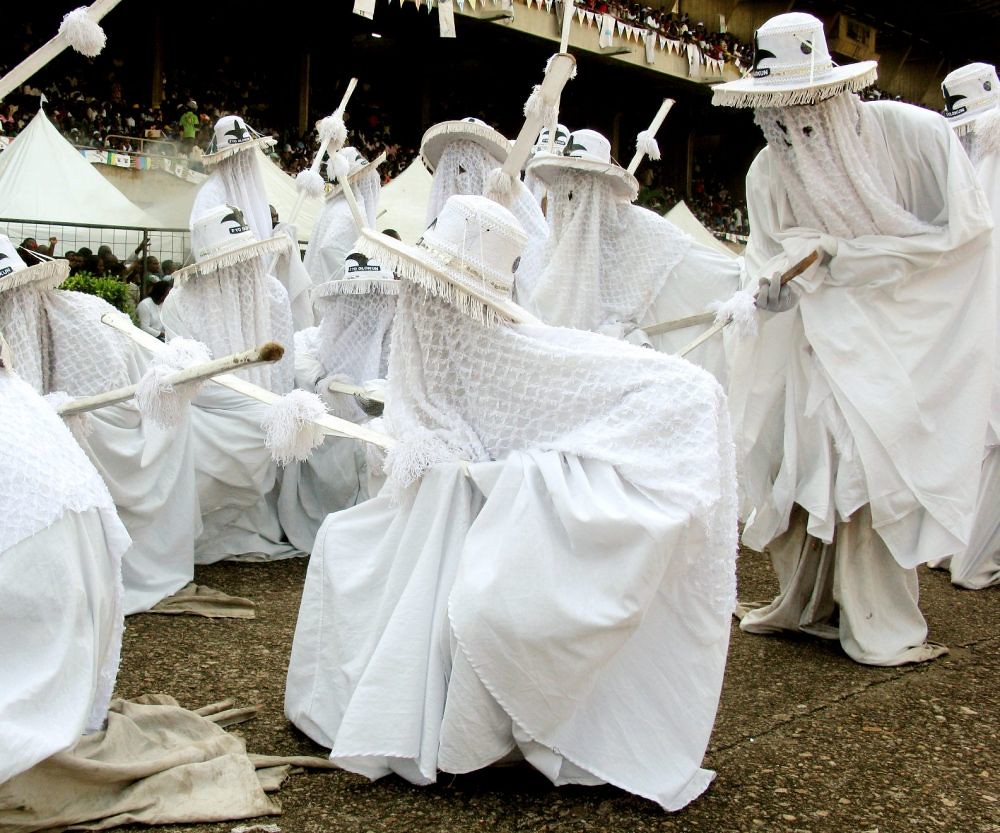
Lagos transforms through this rare celebration featuring thousands of white-robed figures representing ancestral spirits in processions through Nigeria’s largest city. Participants wear distinctive broad-brimmed hats and speak in high-pitched voices while carrying decorated staffs tapping rhythmically against the ground to communicate with ancestors.
Strict traditional protocols govern participation, with ceremonial roles passed through family lineages that maintain spiritual significance beyond tourist spectacle. The festival occurs at irregular intervals determined by traditional authorities rather than fixed annual scheduling, maintaining its authentic ceremonial character despite occurring within one of Africa’s most densely populated urban environments.
Like Travel Pug’s content? Follow us on MSN.
Festival Sur le Niger
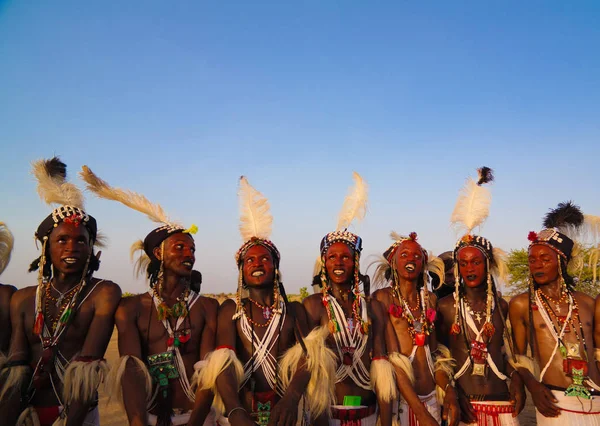
Mali’s riverside gathering transforms Ségou through performances on floating stages with musicians performing from boats while audiences enjoy both banks of the Niger River. Founded in 2005 as a community development initiative rather than a typical music festival, the event reinvests proceeds directly into regional cultural preservation and educational projects.
Programming emphasizes traditional instruments, including kora, balafon, and ngoni, alongside contemporary adaptations evolving Malian musical traditions. Despite regional security challenges affecting tourism throughout Mali, local community support maintains this event’s viability while providing crucial economic activity for Ségou’s creative sector.
Marsabit Lake Turkana Cultural Festival
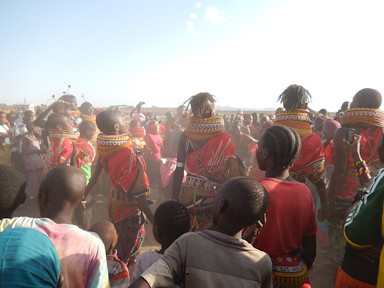
Kenya’s northern frontier transforms through this gathering, uniting 14 distinct ethnic groups, including Rendille, Borana, Gabra, and Samburu communities, sharing surprisingly different traditions despite geographical proximity. Warriors from historically antagonistic groups demonstrate distinctive cultural practices through dances, crafts, and ceremonies, fostering peaceful interaction between communities with histories of resource-based conflict.
The festival’s location near the borders with Ethiopia and South Sudan underscores transnational cultural connections extending beyond colonial-imposed boundaries. Traditional camel races demonstrate practical skills still essential for nomadic communities navigating one of Earth’s harshest environments—where traditional knowledge remains necessary for survival.
Bushfire
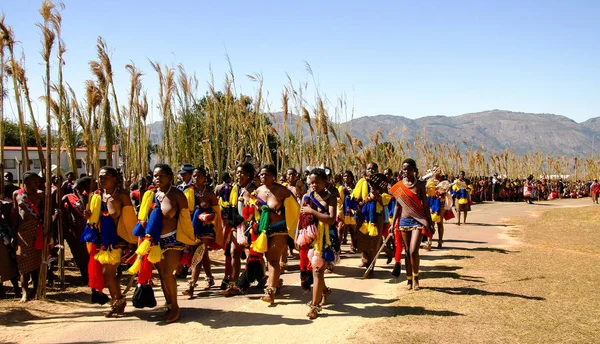
Eswatini (formerly Swaziland) hosts this socially conscious arts festival, combining performances with meaningful engagement, addressing regional challenges through creative expression. Founded in 2007 by local entrepreneur Jiggs Thorne, the event donates 100% of profits to young women’s education programs while providing platforms for regional artists rarely included in international touring circuits.
The festival’s “bring your fire” theme encourages active participation rather than passive consumption, with programming addressing social issues, including HIV/AIDS education, crucial in a country with among the world’s highest infection rates. Traditional Swazi culture integrates with contemporary artistic expressions, creating a genuine exchange between generations.
Like Travel Pug’s content? Follow us on MSN.
Reed Dance
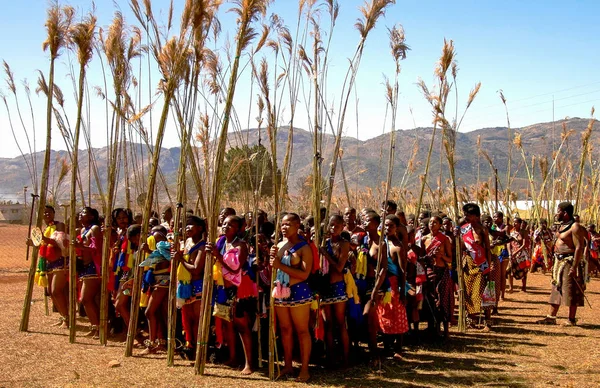
Eswatini’s most significant cultural ceremony brings thousands of young women to the royal residence, presenting harvested reeds while performing traditional dances, demonstrating their suitability for potential marriage selection. The week-long ceremony maintains genuine cultural significance beyond the tourism spectacle, with many participants genuinely hoping for selection into the royal family despite contemporary educational and professional opportunities now available.
Tens of thousands of unmarried women wear traditional attire, including distinctive pom-poms, while carrying reeds tall enough to rebuild the queen mother’s ceremonial shelter. The event balances traditional practices with modern realities in Africa’s last absolute monarchy, where such ceremonies maintain genuine political significance.
Sauti za Busara

Zanzibar’s Stone Town provides the extraordinary cultural backdrop for this festival, showcasing music from across the African continent within UNESCO World Heritage architecture. Programming primarily features artists overlooked by the Western music industry despite the exceptional quality, with performances across venues, including historic Arab forts and former slave market sites, acknowledging the island’s complex cultural history.
The name translates as “sounds of wisdom” and reflects an organizational commitment to music promoting social change rather than simply entertainment. Practical workshops accompany performances offering skill development for regional musicians while creating professional networks benefiting participants beyond festival appearances.
Festima

Burkina Faso hosts this extraordinary mask festival, uniting traditional spiritual practitioners from across West Africa for performances typically restricted to initiated community members. Founded in 1996 to preserve threatened traditions, the biennial gathering rotates between villages around Dédougou, featuring mask traditions representing animal spirits, ancestors, and natural forces central to traditional religious systems.
Performances demonstrate remarkable physical techniques including dancers spinning at extraordinary speeds on wooden stilts rising ten feet above ground while wearing heavy masks. The event maintains spiritual significance for participating communities while creating unprecedented opportunities for the preservation of traditions threatened by religious conversion and generational disinterest.
Like Travel Pug’s content? Follow us on MSN.
Thousand Stars Festival

Ethiopia’s South Omo Valley transforms through this gathering, where seventeen distinct ethnic groups, including Hamar, Mursi, and Karo communities, share cultural traditions despite minimal interaction throughout most of the year. Participants maintain virtually unprecedented cultural diversity within a small geographical area, with communities speaking unrelated languages while practicing drastically different traditional customs.
Body modification traditions, including lip plates, scarification, and elaborate hairstyles, represent authentic cultural practices rather than tourist performances. The festival promotes peaceful interaction between groups historically competing for limited resources while demonstrating extraordinary cultural diversity maintained within Ethiopia’s southern regions.
Windows into Cultural Richness

Africa’s festivals reveal cultural wealth extending far beyond typical tourism narratives through celebrations blending ancient traditions with contemporary expressions. These events offer rare opportunities to experience authentic practices, maintaining genuine community significance rather than performances staged primarily for visitors.
While increased tourism brings economic benefits supporting cultural preservation, the most compelling festivals maintain core functions serving host communities’ actual needs rather than external expectations. Travelers fortunate enough to attend these celebrations often describe them as a transformative experience, revealing Africa’s extraordinary cultural depth through direct engagement with living traditions continuing despite profound modern challenges.
More from Travel Pug

- Cities Growing so Fast You Won’t Recognize Them in 10 Years
- 13 Destinations Where Tourists Regularly Regret Their Trip
- 16 U.S. Cities That Are Quietly Becoming Travel Hotspots
- Where to Travel If You Love Long Bus Rides and Daydreams
- 20 Cities Perfect for Solo Travelers Who Crave Adventure & Culture
Like Travel Pug’s content? Follow us on MSN.
